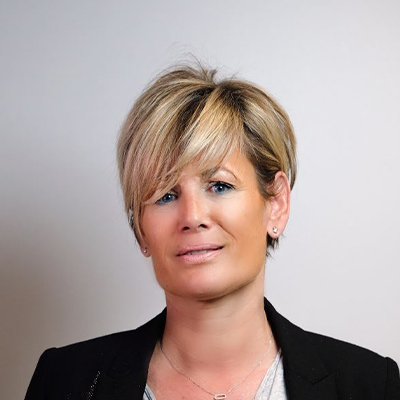The Cloud, more than ever the foundation of digital transformation - DEEP

Digital transformation is accelerating in Luxembourg, driven by the cloud. With the upcoming arrival of Azure Extended Zone in Luxembourg, organizations now have new opportunities to combine agility and compliance.
All around the world, the digital transformation of organizations is gaining momentum. Luxembourgish economic players, regardless of their sector, are now part of this dynamic.
The cloud has become the foundation of every digital transformation project. “Cloud technology, through Microsoft Azure solutions, gives organizations enhanced agility. It allows them to access advanced technologies in strategic areas such as artificial intelligence, analytics, and cybersecurity—without having to make the same capital investments as in the past,” explains Adrien Maugard, Cloud Architect at DEEP, the POST Group entity dedicated to the Telecom and ICT needs of professional actors. “It enables companies to move toward flexible resource management and to optimize financial costs linked to digital usage.”
In a rapidly changing digital environment, companies have every reason to adopt a “cloud-first” approach—in other words, to make the cloud the cornerstone of their digital strategy.
Between opportunities and constraints: finding the right balance
While the cloud is an essential driver of transformation, its adoption requires consideration of many factors. This is particularly true in Luxembourg, where financial sector players (among others) must comply with numerous regulatory requirements—especially regarding data management, cybersecurity, and resilience.
“Aware of these specific needs, Microsoft has evolved its Azure portfolio to offer solutions tailored to proximity, compliance, and data localization constraints,” explains Adrien Maugard. “This offering enables Luxembourgish organizations to implement environments that strike the optimal balance—benefiting from the advantages of the cloud without compromising on latency or local compliance requirements.”
An expanded offering, new perspectives
In this context, customers can choose from four cloud offers provided by Microsoft Azure:
- Azure Public Cloud: A global platform granting access to all Microsoft services and innovations, with virtually unlimited scalability. In this case, we recommend the “Germany West” region in Frankfurt, where Microsoft is investing around €2 billion.
- Azure Extended Zone: Available in Luxembourg from next year, this will act as a fourth data center for the “Germany West” region. It ensures that data remains located within national borders—meeting regulatory requirements and reassuring entities with strict compliance constraints.
- Azure Express Route POP: Launching in Luxembourg at the same time as the Extended Zone, this offer provides direct access to Microsoft’s global network via a simple local loop—reducing both communication costs and latency (notably for services hosted in the Extended Zone).
- Azure Local (formerly Azure Stack HCI): An Azure stack deployed directly within an organization’s local infrastructure, enabling access to the Azure ecosystem while maintaining full control over data and hosting.
“These Azure options open up new perspectives,” says Adrien Maugard. “The choice is no longer between ‘all-cloud’ or ‘all-local’. Organizations can combine models, build hybrid or multicloud environments, and find the right balance between innovation, performance, and regulatory compliance. The deployment of Azure Extended Zone in Luxembourg from 2026 marks a major milestone—combining the benefits of public cloud with the compliance and regulatory demands specific to the Luxembourg market.”
Organizations thus gain a new lever to accelerate their digital transformation—without compromising security or data localization.
Supporting cloud migrations
The success of a cloud migration depends not only on technology, but also on the methodology and guidance provided.
As both a Telecom operator and ICT service provider, DEEP offers a comprehensive approach covering the entire value chain:
- connectivity and networking
- hosting and data centers
- cloud services
- cybersecurity
- data & AI
- application architecture and integration
- monitoring and operational management
Evolving your environment while managing risk
Beyond the initial setup, DEEP takes a long-term view through its Digital Factory, which helps strengthen organizations’ digital maturity.
“While the first step often involves moving workloads from on-premises environments to the cloud, the goal is to gradually evolve systems to leverage Azure’s full potential,” explains Adrien Maugard. “Our engineers help transform architectures and systems to enable automation of deployments (Infrastructure as Code), updates, and vulnerability remediation under a Zero Trust model.
This end-to-end support allows organizations to modernize their IT while managing risk and cost, and ensuring the operability of these new platforms.”
Compliance and security at the core
DEEP also stands out through its strong expertise in regulatory and cybersecurity matters. Its teams integrate into each project the resilience requirements set by DORA and NIS2, along with the demands of data protection and confidentiality.
“Every client has unique constraints,” continues Adrien Maugard. “Some will prioritize full sovereignty, while others seek maximum agility. Our mission is to deliver the right solution—combining technical expertise, regulatory understanding, and strategic vision.”
For Luxembourg organizations, the cloud is no longer a distant goal—it is a strategic necessity to remain competitive.
Through Azure solutions, and with its multi-domain expertise, end-to-end support, and deep understanding of the regulatory framework, DEEP positions itself as a trusted partner—capable of transforming digital ambitions into tangible, compliant realities.
Contact us
Do you have any questions about an article? Do you need help solving your IT issues?
Contact an expertOther articles in the category Cloud
Work Smarter with Microsoft 365 and Teams
Stop sending files by email! Discover how Microsoft 365 and Teams help SMEs collaborate efficiently, share securely, and boost productivity.
Published on
04 November 2025
DORA: guaranteeing an effective Exit Strategy
To help cloud-based financial services providers comply with DORA and support their operational resilience, Deloitte and DEEP are implementing an innovative ‘Exit Strategy’ solution.
Published on
20 December 2024
Best Practices for Oracle Cloud Migration with Landing Zone Implementation
Discover the Key best practices for a successful Oracle Cloud migration: preparation, Landing Zone and optimization.
Published on
11 June 2024








Our experts answer your questions
Do you have any questions about an article? Do you need help solving your IT issues?




